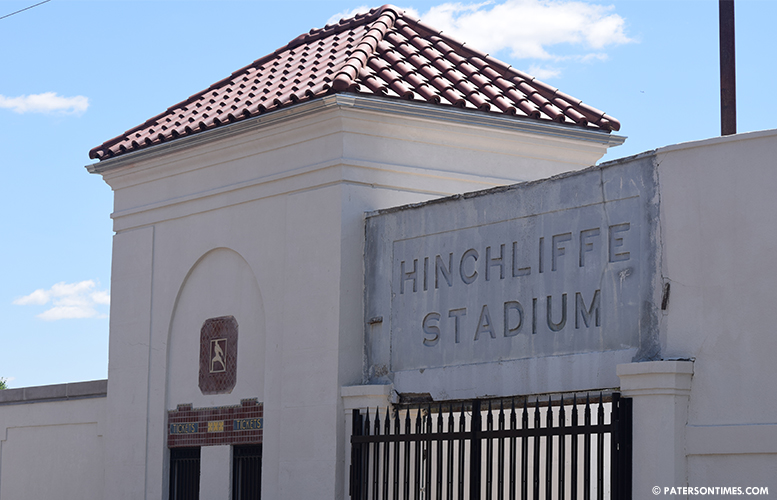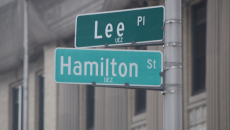Mayor Andre Sayegh’s administration secured preliminary approval from the City Council to grant a 30-year tax abatement to a developer putting up a six-story senior housing complex as part of a project to renovate the historic Hinchliffe Stadium.
Council members voted 6-2 to initially approve the payment-in-lieu of tax (Pilot) agreement after 1 hour and 45 minutes of rancorous debate. Under the agreement, the city will receive an average of $129,153 per year in taxes for the next 30 years from the developers. Over that 30-year period, the city will collect $3.87 million in fees instead of regular property taxes.
That figure — $129,153 — is significantly less than what the property would pay under regular taxation. Sayegh administration officials did not have any projections on the likely assessment of the building once it is built. After grilling from council members, Joseph Portelli of RPM Development Group, one of the two developers in the project, said the six-story building with 75 units and a daycare center will be assessed at $4.5 million for a likely annual tax bill of $200,000.
Portelli said without the tax abatement the project will not advance.
Council members Maritza Davila, Michael Jackson, and Luis Velez tried to postpone the vote on the measure. But their motion to table failed to pass. Velez suggested reducing the tax abatement from 30 to 15 years. But the developers said that might not be financially feasible. But even those who supported the measure were frustrated as economic development director Michael Powell and Baye Adofo-Wilson, the primary developer in the project, deflected or failed to provide concise answers to questions.
“I want to know how much you are putting in out of your pocket,” asked council president Flavio Rivera.
“What is their investment?” interjected Davila.
“Answer my question if you can if not we’re going to leave it as not answered and we’re going to go to the next item,” said Rivera. “How much are you putting in?”
Portelli said the developers are contributing $3.3 million. The housing portion of the project is $28 million. The total project, including renovation of the stadium, is $77 million. Majority of the funds for the project are from state tax credits and grants.
Sayegh earmarked $50 million for the project in state tax credits that were assigned to Paterson. He did not consult the City Council before picking developers for various tax credit projects. He also did not put out a request for proposal for the projects. His opaque dealings with developers led his critics describing the deals as shady.
“When we talk about the lengthy period of time Paterson not having things, maybe it’s because of habitual mismanagement and habitual corruption,” said Jackson. “Paterson has been in the headlines for corruption all the time. This deal right here is an example of that.”
Jackson attacked some of his colleagues for supporting the tax abatement deal. He slammed Ruby Cotton, 4th Ward councilwoman, who focused more on the senior housing and less on the financial details of the tax abatement. But his most aggressive attack was lobbed against newly appointed councilman Gilman Choudhury of the 2nd Ward.
“We swore in a councilman who has not one question, only to vote in the affirmative,” said Jackson. He also said Sayegh has seized control of the governing body with Choudhury’s appointment.
Choudhury experienced technical difficulties for much of the virtual meeting.
Choudhury, Cotton, Velez, Lilisa Mimms, Rivera, and Al Abdelaziz voted in favor while Jackson and Davila voted against.
Sayegh administration officials had wanted to give a 35-year tax abatement; however, the City Council members wanted it reduced to 30 years.
A public hearing and final vote on the tax abatement is slated for August 11 at 7 p.m.
Email: [email protected]
Correction: A previous version of this report erroneously stated it was a 35-year tax abatement when in fact it’s a 30-year tax abatement.



